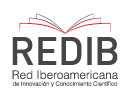Entre resistencia y statu quo
dinámicas culturales del negacionismo climático online
DOI:
https://doi.org/10.21142/DES-1503-2023-0042Palabras clave:
cambio climático, negacionismo climático, escepticismo, imaginarios climáticos, redes socialesResumen
Aunque se ha vuelto sumamente importante estudiar el fenómeno del escepticismo (o negacionismo) climático desde las ciencias sociales, la mayoría de los estudios revisados descuidan sus dimensiones culturales. El objetivo de este artículo es individuar los imaginarios que se construyen y circulan sobre el cambio climático en el grupo de Facebook «Watts Up With That?» y las narrativas que se utilizan para sostenerlos discursivamente. A través de un análisis de las publicaciones y discusiones en el grupo, muestro que estas alimentan un discurso escéptico en el que algunos temas recurrentes crean un panorama moral bastante polarizado, y se discuten dentro de un entorno de autolegitimación y rechazo del discurso científico oficial. Como conclusión principal, propongo que el negacionismo climático representa una defensa del statu quo vigente, y construye un imaginario ambiental basado en la separación entre seres humanos y naturaleza, y en la narrativa ilustrada del progreso infinito
Descargas
Referencias
Abbinnett, R. (2021). The neoliberal imagination: Politics, aesthetics, and economics in the evolution of hyper-industrial capitalism. Routledge.
Ballew, M., Marlon, J., Leiserowitz, A. y Maibach, E. (20 de noviembre de 2018). Gender differences in public understanding of climate change. Yale Program on Climate Communication. https://climatecommunication.yale.edu/publications/gender-differences-in-public-understanding-of-climate-change/
Blee, K. M. y Creasap, K. A. (2010). Conservative and right-wing movements. Annual Review of Sociology, 36(1), 269- 286. https://doi.org/10.1146/annurev.soc.012809.102602
Bloomfield, E. F. y Tillery, D. (2018). The circulation of climate change denial online: Rhetorical and networking strategies on Facebook. Environmental Communication, 13(1), 23-34. https://dx.doi.org/10.1080/17524032.2018.1527378
Castro-Pérez, R. (2023). Performing c onservatism: A study of emerging political mobilisations in Latin America usin g «Social Media Drama » Analysis. En E. Costa, P. G. Lange, N. Haynes, y J. Sinanan (e ds.), The Routledge Companion to Media Anthropology (pp. 465-477). Routledge.
de Wit, S. y Haines, S. (2022). Climate change reception studies in anthropology. Wiley Interdisciplinary Reviews: Climate Change, 13(1), e742. https://doi.org/10.1002/wcc.742
DW Documental ( 2 de septiembre de 2022). ¿Por qué nuestro cerebro no puede procesar el cambio climático? [Video]. Arcoiris TV. https://www.arcoiris.tv/scheda/it/45578/addC
García-Belaunde Velarde, V. y Gayozzo, P. (2023). Pseudociencias: una nueva amenaza al proyecto humanista secular. Desde el Sur, 15(2), e0026. https://doi.org/10.21142/DES-1502-2023-0026
Graeber, D. (2013). Culture as Creative Refusal. Cambridge Journal of Anthropology, 31(2), 1-19. http://dx.doi.org/10.3167/ca.2013.310201
Hall, S. (1980). Encoding/decoding. En S. Hall, D. Hobson, A. Lowe, y P. Willis (e ds.), Culture, media, language: Working papers in cultural studies, 1972- 79 (pp. 117 -127). Routledge.
Hamilton, O. R. (2022). Il potere sostenibile. Internazionale, 1484, 46-53.
Hochsprung Miguel, J. C. (2021). Pós-verdade ou produçao da ignorância? CTS em foco, 5, 54-59.
Hochsprung Miguel, J. C. (2022). A «meada » do negacionismo climático e o impedimento da governamentalização ambiental no Brasil. Sociedade e Estado, 37(1), 293-315. https://doi.org/10.1590/s0102-6992-202237010013
Jasanoff, S. (2010). A new climate for s ociety. Theory, Culture & Society, 27(2-3), 233-253. https://doi.org/10.1177/0263276409361497
Kennedy, B., Tyson, A. y Funk, C. (2022a). Americans’ trust in scientists, other groups declines. Pew Research Center. https://www.pewresearch.org/science/2022/02/15/americans-trust-in-scientists-other-groups-declines/
Kennedy, B., Tyson, A. y Funk, C. (2022b). Americans v alue U.S. role as scientific leader, but 38% say country is losing ground globally. Pew Research Center. https://www.pewresearch.org/science/2022/10/25/americans-value-u-s-role-as-scientific-leader-but-38-say-country-is-losing-ground-globally/
Lahsen, M. (2013). Anatomy of d issent: A cultural analysis of climate skepticism. American Behavioral Scientist, 57(6), 732-753. https://doi.org/10.1177/0002764212469799
Levy, D. L. y Spicer, A. (2013). Contested imaginaries and the cultural political economy of climate change. Organization, 20(5), 659-678. https://doi.org/10.1177/1350508413489816
Lucas, C., Leith, P. y Davison, A. (2015). How climate change research undermines trust in everyday life: a review. WIREs Climate Change, 6(1), 79-91. https://doi.org/10.1002/wcc.320
Mann, M. E. (2012). The Hockey Stick and the Climate Wars. Columbia University Press.
McGranahan, C. (2016). Theorizing r efusal: An i ntroduction. Cultural Anthropology, 31(3), 319-325. https://doi.org/10.14506/ca31.3.03
Mildenberger, M., Marlon, J., Howe, P. y Leiserowitz, A. (1 de julio de 2020). Democratic and Republican Views of Climate Change (2018). Yale Program on Climage Change Communication. https://climatecommunication.yale.edu/visualizations-data/partisan-maps-2018/
Morton, T. (2013). Hyperobjects. Philosophy and ecology after the end of the world. University of Minnesota Press.
Pearce, W., Niederer, S., Özkula, S. M. y Sánchez Querubín, N. (2018). The social media life of climate change: Platforms, publics, and future imaginaries. WIREs Climate Change, 10(2), e569. https://doi.org/10.1002/wcc.569
Peterson, J. (27 de octubre de 2022). Jordan Petersons thoughts on Russia and Ukraine | With Piers Morgan. [Video]. Facebook. https://www.facebook.com/watch/?v=1248259112683361
Proctor, R. N. (2008). Agnotology: A missing term to describe the cultural production of ignorance (and its study). En R. N. Proctor y L. Schiebinger (e ds.), Agno tology. The making and unmaking of ignorance (pp. 1-35). Stanford University Press.
Rudiak-Gould, P. (2011). Climate change and anthropology: The importance of reception studies. Anthropology Today, 27(2), 9- 12. https:// doi.org/10.1111/j.1467-8322.2011.00795.x
Rudiak-Gould, P. (2012). Progress, decline, and the public uptake of climate science. Public Understanding of Science, 23(2), 1-15. https://doi.org/10.1177/0963662512444682
Rudiak-Gould, P. (2013). Cross-Cultural Insights into Climate Change Skepticism. Bulletin of the American Meteorological Society, 94(11), 1707-1713. https://doi.org/10.1175/BAMS-D-12-00129.1
Schaeffer, K. (22 de abril de 2022). For Earth Day, key facts about Americans’ views of climate change and renewable energy. Pew Research Center. https://www.pewresearch.org/fact-tank/2022/04/22/for-earth-day-key-facts-about-americans-views-of-climate-change-and-renewable-energy/
Sobo, E. J. (2016). Theorizing (vaccine) refusal: Through the looking glass. Cultural Anthropology, 31(3), 342-350. https://doi.org/10.14506/ca31.3.04
Stefanoni, P. (2021). ¿La rebeldía se volvió de derecha? S iglo V eintiuno.
Van Aken, M. (2020). Campati per aria. elèuthera.
Vulpe, S.-N. (2020). Cooling down the future. A discourse analysis of climate change skepticism. The Social Science Journal. https://doi.org/10.1080/03623319.2020.1848294
Descargas
Publicado
Número
Sección
Licencia

Esta obra está bajo una licencia http://creativecommons.org/licenses/by-nc-sa/4.0/


















